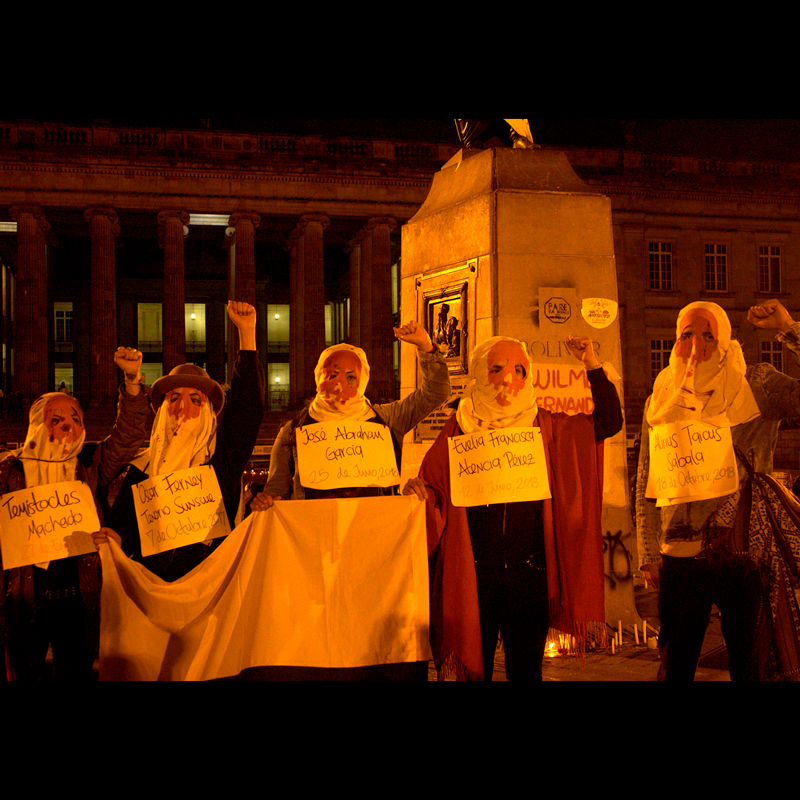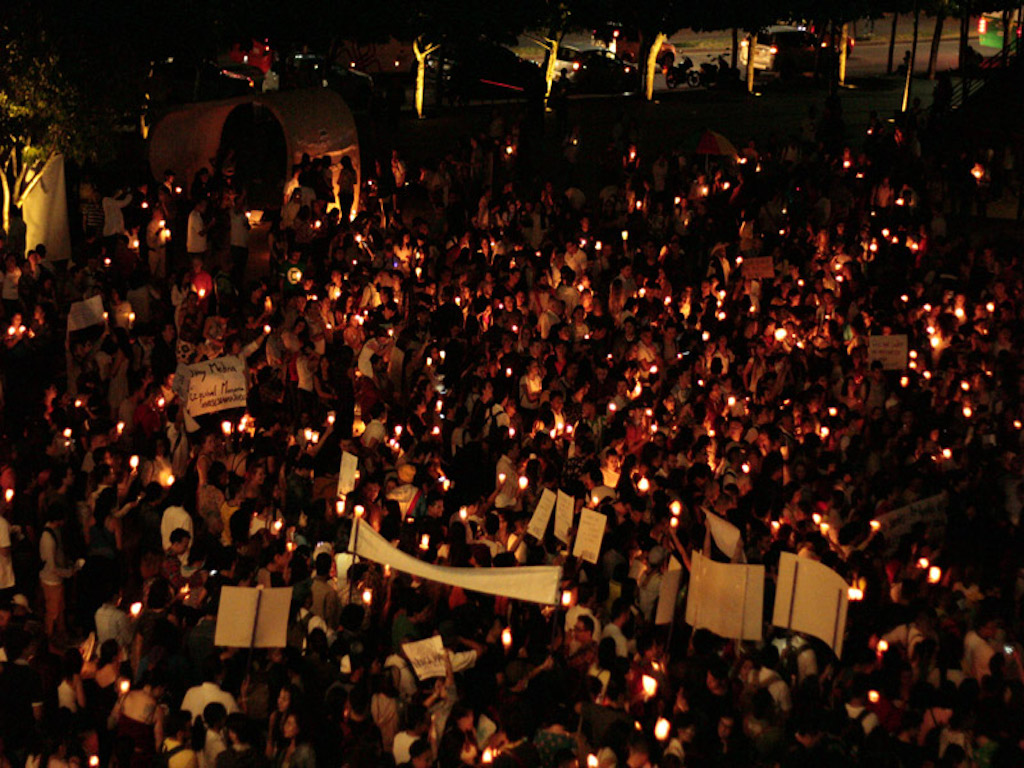The assassinations of social leaders, human rights defenders, environmentalists, land defenders, peasants, indigenous activists, Afro-Colombian activists and anyone who dares to challenge the status quo has become commonplace in Colombia. In just 30 months, over 430 social leaders have been reported assassinated and hundreds more fear for their lives as they receive threats daily, and paramilitary groups begin to occupy large parts of the countryside. Peoples Dispatch spoke to human rights defender and popular communicator Olimpo Cárdenas of the Human Rights Commission of Congreso de los Pueblos (The People’s Congress) about the worrying humanitarian crisis in Colombia and the perspectives of the social movement on the same.
Peoples Dispatch: How do you see the current human rights situation in Colombia with the alarming number of assassinations of social leaders, as well as an increase in threats, criminalization and harassment of members of social movements?
Olimpo Cárdenas: The situation in Colombia, where 430 social leaders have been assassinated in the last 30 months, hundreds criminalized, with almost a thousand instances of threats, harassment and the permanent presence of paramilitary groups in the countryside is really more than alarming. From Congreso de los Pueblos (The People’s Congress), we are deeply concerned because all these social genocidal practices that the Colombian state carries out are specifically directed at social and people’s organizations, political parties and even some organizations that are not even left wing but have questioned this false democracy of the Colombian state and obviously the grave social, environmental and political situation that our country suffers from. These social genocidal practices have the fundamental goal of exterminating the opposition and democratic organizations that propose the transformation of this country. Congreso de los Pueblos is part of this bloc so it deeply worries us.
PD: Why is the repression increasing even though a peace accord was signed more than a year ago? In this context, what will be the impact of the new Uribista regime (of incoming president Ivan Duque, who is a protege of former president Alvaro Uribe)?
OC: One of the reasons for the increasing spiral of violence is the Colombian oligarchy which benefits from the war. The war guarantees the maintenance of the status quo of a multi-million dollar business involving arms trading, uniforms, planes, helicopters etc. All of this business has been an important generator of wealth and power for a layer of military personnel that have managed this country at their liking in a close alliance with the elites and bourgeoisie of the country. Of course, none of them want to lose these privileges that they have thanks to the resources from the war, or the image they are able to present to the people of the country.
On the other hand, it must be recognized that the peace agreement signed between the government and the insurgency merely sought the disarmament of the latter. Now, these groups in power that have deep interests in drug trafficking, assassinations and in all types of irregular business like large-scale mining, are fighting for the territories the FARC used to control militarily – either with other armed groups or sometimes, with the ELN insurgent group.
Knowing that these extreme right-wing groups use war as a business and a tactic to sustain their power, we can imagine what the situation will be like from August 7 onwards when Ivan Duque takes office. He is from the most extreme right wing political sector that has at its core the practice of war, genocide, exclusion, discrimination and of course, corruption and looting.
The social and people’s movements are extremely worried. For example, the new Minister of Defense, Guillermo Botero, is a highly conservative, multi-millionaire and has already announced that he will propose a law to regulate and control social protests. The elites know that there will be a reaction from people in response to all of the measures they are taking and will take, and of course for this new defense minister, it is more important to propose legislation to control protests before dealing with the serious tragedy of over 400 assassinations, the criminalization of hundreds of activists and hundreds of threats.
PD: With regard to the criminalization, what does the Colombian state seek with the incarceration of comrades like Julián Gil, Sara and Tulia and other committed social leaders?
OC: What the Colombian state aims to do when they criminalize Tulia, Sara, Julián, Senator Alberto Castilla and many other comrades of Congreso de los Pueblos is putting into practice this genocidal policy that involves not only the assassination of leaders but also other forms of repression to such as harassment, persecution, criminalization and threats. All of these have the same goal – the extermination and the extinction of the social fabric of these social and people’s organizations by creating an environment of fear and weakening these organizations.
It’s a perverse practice that consists of reducing the possibility of reaction and any opposition, and of giving themselves a free reign to push forward all of their neoliberal projects. Any person who gets in their way will be flattened. Congreso de los Pueblos proposes working for a Colombia where its people can live dignified lives, a proposal that seeks to transform and thus is a principal enemy of this neoliberal assassin state.
PD: How does the social movement visualize resistance in this situation?
OC: Despite all of these terrible things that I just mentioned, the current political moment in Colombia leaves some spaces of opportunity for political and organizational development and mobilization.
I think the whole world knows that in Colombia, some extraordinary things happened in these last presidential elections. For the first time in the history of the country, a candidate who was left leaning obtained more than 8 million clean votes. For the first time, a candidate won the support of 8 million people who in their conscience believed in the proposal for a better and more democratic country. Through the act of voting, these 8 million people confronted a great deal of dirty work, money from the mafia and threats of all kinds.
This experience that we had with the Colombia Humana (Humane Colombia) campaign and its leader Gustavo Petro during the elections allowed for a level of organization and a possibility of resistance never seen before, as well as a blueprint for struggle and mobilization of the social forces to confront what is coming. These include a referendum against corruption, the local elections in 2019 and of course the issues that Petro’s presidential campaign put on the table like health, education and employment, amongst others.
So there is a big opportunity here! We already saw the reaction after the assassinations that happened in the beginning of July. Hundreds of thousands of people took to the streets in Colombia and in more than 50 countries in protest and sought to mobilize for life and peace. Now for August 7 – when Iván Duque will be sworn in – there is a proposal for a mobilization with millions of people on a global level. We invite the world to join us in this mobilization for life and for peace. For us, the fight lies in fighting!






